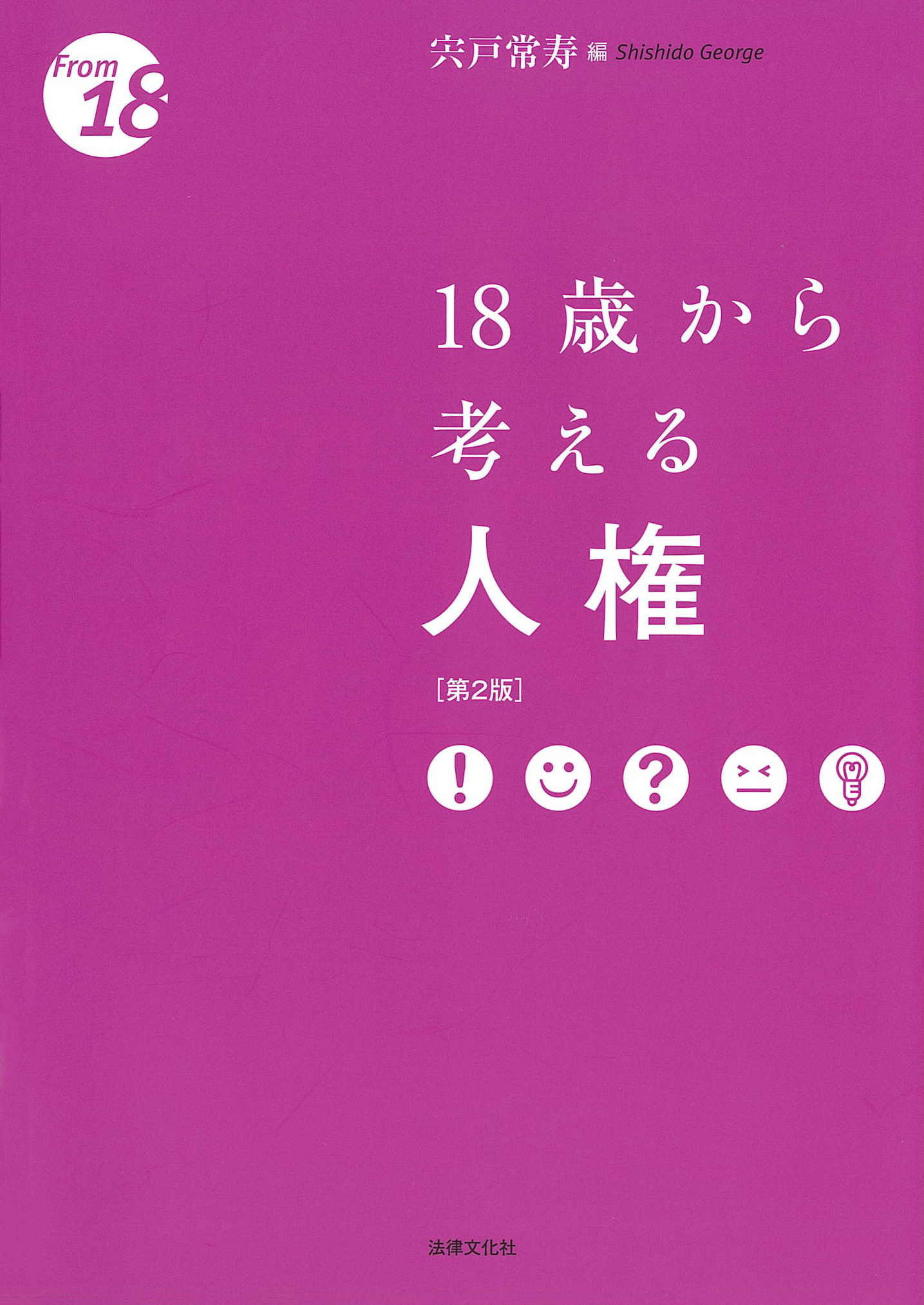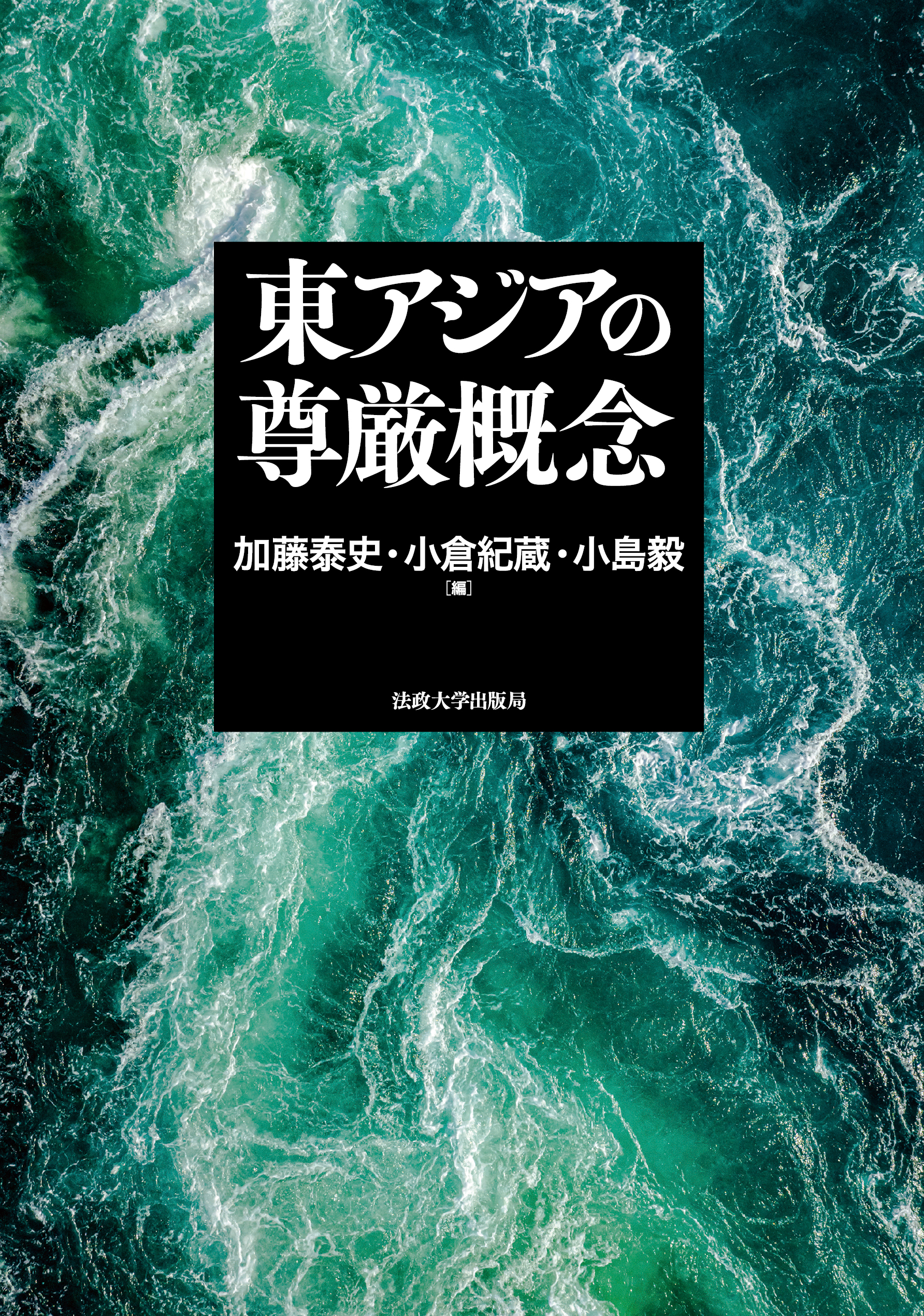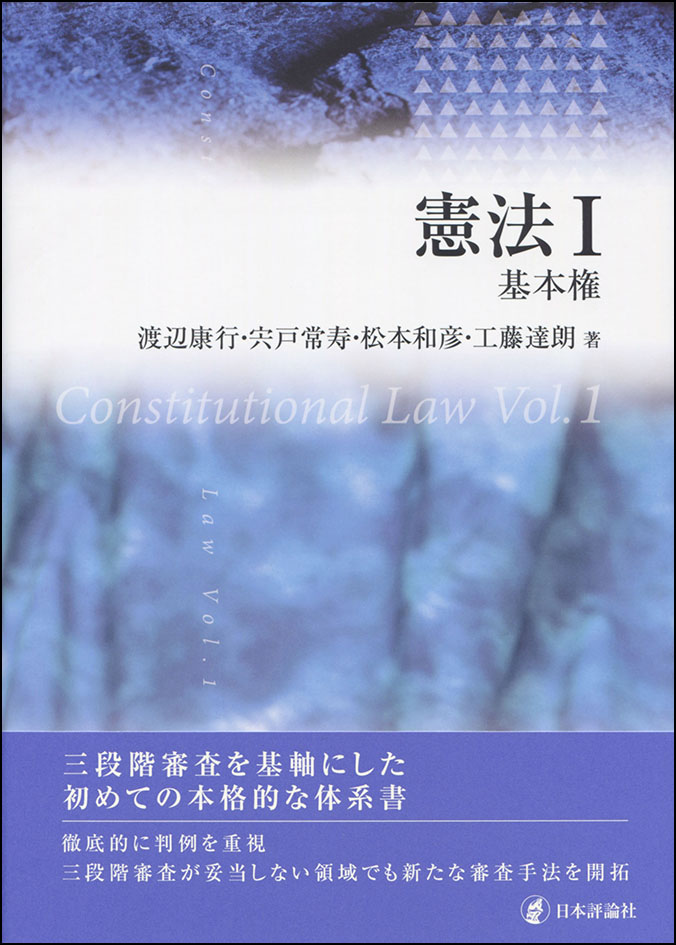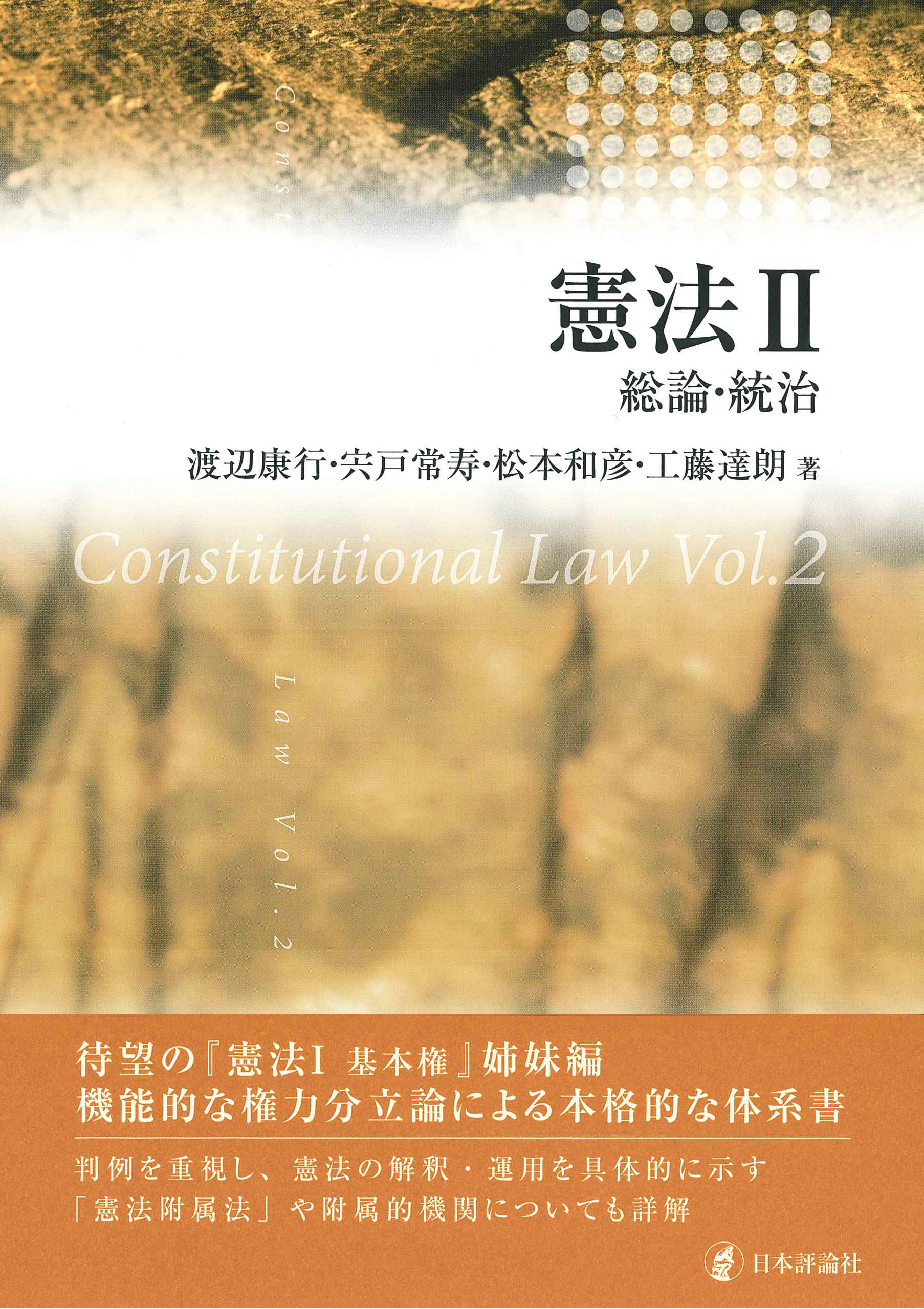
Title
The “From 18” Series 18-sai kara kangaeru Jinken (Thinking about Human Rights: From 18 Onward - Second Edition)
Size
106 pages, B5 format
Language
Japanese
Released
November, 2020
Published by
Horitsu Bunka Sha
Book Info
See Book Availability at Library
Japanese Page
This book was written to serve as a textbook in a basic liberal arts course on the constitutional law, and is thus a primer on human rights theory. The assumed reader is an undergraduate student of law who will only take this one course on constitutional law. The book has numerous photographs, graphs, and tables, with side notes on key vocabulary terms.
Educational materials used in constitutional law classes in law faculties and schools lean heavily on interpretive theory, using case studies and leading theories. This book instead takes up questions that arise in the daily lives of both high school graduates who are now working and university students pursuing a major other than law. It is aimed at helping young readers gain a better understanding of and respect for human rights. While it discusses specific cases, rather than analyzing those with intricate theories, it provides easy-to-understand explanations of how the dispute occurred and how it was resolved. From the book’s planning stages, I asked researchers from my generation, having experience of teaching constitutional law as a liberal arts subject, to write contributions.
The book chiefly deals with issues that actually occur in contemporary society. As is often indicated, there exists a gap between the image of “human rights” taught in university constitutional law education and that conveyed by the use of the term “human rights” in everyday life. In constitutional law, primarily, public authority is seen as the violator of human rights, while in general society, “bullying” among students is a typical example of a human rights problem. The book does not deny this gap and in fact considers both viewpoints as involving important human rights issues, explaining the differences between the two images as a backdrop for this gap.
The book’s first edition was published in 2015, and its popularity has enabled the publication of this second edition. Many changes have occurred in society over this five-year period, including an increased awareness of diversity issues and broader institutional engagement for achieving the sustainable development goals. “Business and human rights” has become a key focus, with a growing demand that private companies concentrate on human rights issues. Yet, despite many people taking a new, unbiased look at human rights, there also exist ever deeper inequalities, prejudices against gender minorities, and a growing concern about hate speech among other things. The revised edition covers such contemporary issues in as much detail as possible.
A side effect of the COVID-19 pandemic has been reaffirmation of the importance of “classical” human rights, including freedom of movement (travel, etc.), and self-determination in running a business. As the book’s editor, I hope that readers will gain better perspectives on these human rights issues that have an impact on their daily lives.
(Written by SHISHIDO George, Professor, Graduate Schools for Law and Politics / 2021)



 Find a book
Find a book


 eBook
eBook

